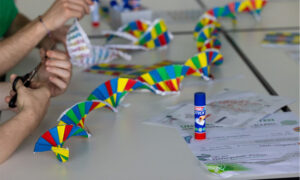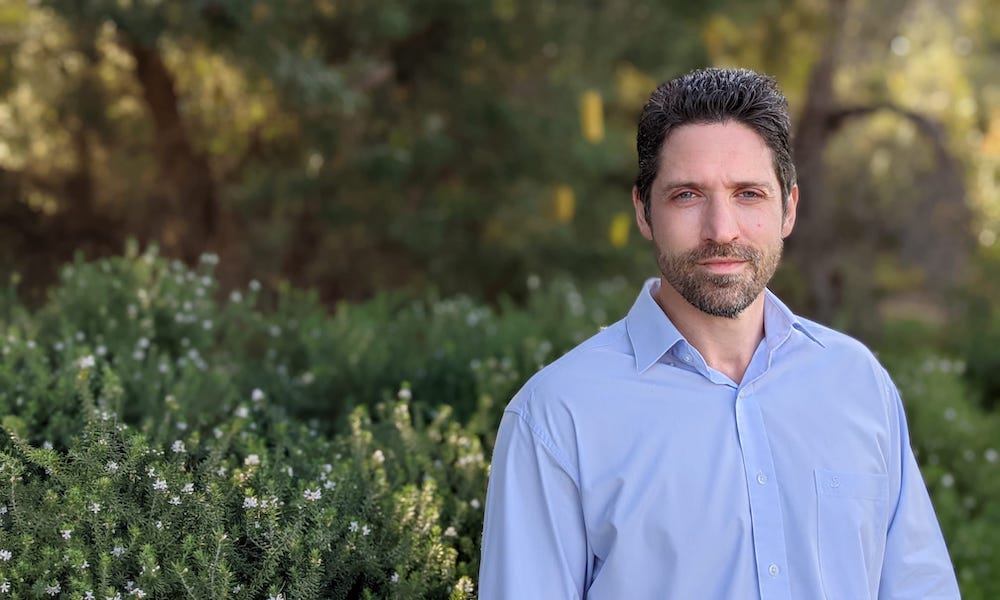
Read the latest Issue
Tudor Groza joins EMBL-EBI as our new Phenomics Team Lead. We found out from Tudor exactly what this new role will entail

Phenomics is an interdisciplinary field that uses computational approaches to make phenotypes and their associated data findable and searchable. Tudor Groza joins EMBL-EBI as our new Phenomics Team Lead. This newly established team will work closely with the Samples, Phenotypes and Ontologies Team. We found out from Tudor exactly what this new role will entail.
I’m a computer scientist by training. I did my bachelor’s and master’s degrees in computer science in my home country, Romania. I then moved to lovely Galway, on the west coast of Ireland, to do my PhD focusing on knowledge representation and information extraction. My PhD supervisors were Siegfried Handschuh, a pioneer of the semantic annotation field, and Stefan Decker, one of the godfathers of what is today referred to as knowledge graphs.
Knowledge graphs represent collections of interlinked entities – objects, events or concepts – usually spanning across multiple data sources.
Next, I started a postdoc in Brisbane at the University of Queensland, and became interested in the field of computational phenotyping. Here I found my niche in structuring and making sense of phenotypes of rare diseases. After that, I moved to Sydney, where I took a Phenomics Team Leader position at the Garvan Institute of Medical Research. I set up different collaborations – with the Monarch Initiative, for example – to further my work on rare disease phenotyping.
I’m the Lead of the newly established Phenomics Team. As part of the Knowledge Management section at EMBL-EBI, I will work on consolidating all the projects that touch on computational phenotyping, including EMBL-EBI’s involvement in the International Mouse Phenotyping Consortium. In addition, I will focus on genomic variation leading to phenotypic changes in clinically-oriented contexts in both rare and chronic disease domains.
Open access data sharing is vital for what we’re trying to do within my team; our work wouldn’t be possible without it.
I’ve been working with colleagues from EMBL-EBI for nearly 15 years and recently I started working with Helen Parkinson on various collaborations. During this process, I learnt a lot about how EMBL-EBI works and its missions. It’s one of the best places in the world to make an impact in my field because it’s a very well-known and well-respected computational biology institute.
Also, the fact that EMBL-EBI supports the advance of science in an open manner attracted me to it. Open access data sharing is vital for what we’re trying to do within my team; our work wouldn’t be possible without it.
One challenge will be finding a solution for the amount of manual work that goes into phenotype curation. It’s well known that although manual curation produces high-quality outcomes, it does not work in the long term because of its slow and time-consuming nature. We will work to find better ways to at least semi-automate some of our curation tasks to enable scalability.
Another challenge is the access to sensitive data in a privacy-aware manner. There are a significant number of siloed data sources and registries in the rare and chronic disease domains that contain individual data points describing a patient’s clinical journey. The existing computational phenotyping approaches would benefit from integrating, at a minimum, statistical data emerging from these data sources. We aim to work towards a framework to enable this.
I’m all about transparency and openness. I think it’s really important that the team communicates and that you create a feeling of belonging. Your team is almost like your second family. But it’s also important that everyone can take ownership over the work they’re doing. I’m always keen to let people explore new ideas and directions. I’m happy for team members to own a piece of work as long as it all comes back into the team and is being shared with everyone else.
I’m a huge fan of Brazilian Jiu-Jitsu and have started practising it – although my age might not agree with this hobby. I did, however, win silver at this year’s State Championships for my age and weight bracket.
Looking for past print editions of EMBLetc.? Browse our archive, going back 20 years.
EMBLetc. archive